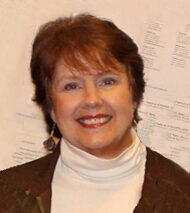
Nancy Huntting, Aesthetic Realism consultant, writes:
For an immensely exciting and valuable experience, read “The Criticism of Poetry & Life”—the new issue of TRO. It describes the importance for every person of being a true critic—and describes what a true critic is, and explains why our judgments can go wrong. It gives the basis on which we can honestly like ourselves! You will be very much encouraged and strengthened by “The Criticism of Poetry & Life,” this latest issue of The Right of Aesthetic Realism to Be Known.
The commentary by Ellen Reiss begins:
Dear Unknown Friends:
With the current issue we conclude our serialization of A Statement about Poetry: Some Instances. In that 1970 lecture, with its might and ease and kindness, Eli Siegel discusses statements about poetry made over the centuries. They are by very diverse critics, beginning with Aristotle. And Mr. Siegel shows that in those statements there is a seeing, in various ways, of opposites in poetry. Some passages are about opposites in a particular poem; others hint at opposites in poetry as such—or in the state of mind a poet should have.
These passages (and others) are earlier pointings-toward, evidence-for, what Aesthetic Realism explains with firmness, comprehensiveness, and vast diversity: “All beauty”—and certainly poetry—“is a making one of opposites, and the making one of opposites is what we are going after in ourselves.”
About the second half of that principle: no critic before Eli Siegel saw that the human self is an aesthetic matter. That is—he showed that we, every moment, are hoping to make a one of those qualities which are the very substance of poetry: rest and motion, exactitude and freedom, for and against, logic and emotion, assertion and yielding—and more….Read more